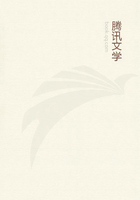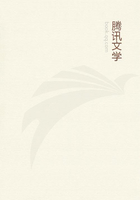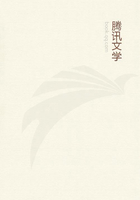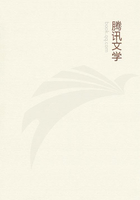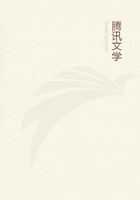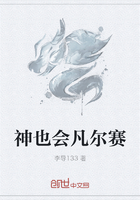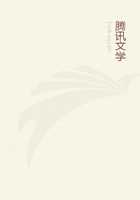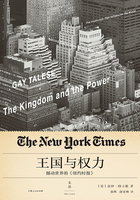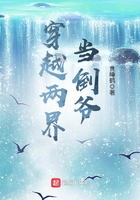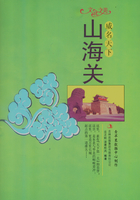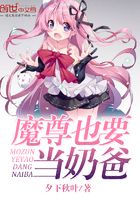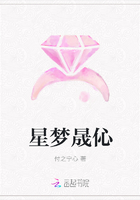WHEN does the vain regret find its keenest sting? When is the doubtful future blackened by its darkest cloud? When is life least worth having. and death oftenest at the bedside? In the terrible morning hours, when the sun is rising in its glory, and the birds are singing in the stillness of the new-born day.
Anne woke in the strange bed, and looked round her, by the light of the new morning, at the strange room.
The rain had all fallen in the night. The sun was master in the clear autumn sky. She rose, and opened the window. The fresh morning air, keen and fragrant, filled the room. Far and near, the same bright stillness possessed the view. She stood at the window looking out. Her mind was clear again--she could think, she could feel; she could face the one last question which the merciless morning now forced on her--How will it end?
Was there any hope?--hope for instance, in what she might do for herself. What can a married woman do for herself? She can make her misery public--provided it be misery of a certain kind--and can reckon single-handed with Society when she has done it.
Nothing more.
Was there hope in what others might do for her? Blanche might write to her--might even come and see her--if her husband allowed it; and that was all. Sir Patrick had pressed her hand at parting, and had told her to rely on him. He was the firmest, the truest of friends. But what could he do? There were outrages which her husband was privileged to commit, under the sanction of marriage, at the bare thought of which her blood ran cold. Could Sir Patrick protect her? Absurd! Law and Society armed her husband with his conjugal rights. Law and Society had but one answer to give, if she appealed to them--You are his wife.
No hope in herself; no hope in her friends; no hope any where on earth. Nothing to be done but to wait for the end--with faith in the Divine Mercy; with faith in the better world.
She took out of her trunk a little book of Prayers and Meditations--worn with much use--which had once belonged to her mother. She sat by the window reading it. Now and then she looked up from it--thinking. The parallel between her mother's position and her own position was now complete. Both married to husbands who hated them; to husbands whose interests pointed to mercenary alliances with other women; to husbands whose one want and one purpose was to be free from their wives. Strange, what different ways had led mother and daughter both to the same fate! Would the parallel hold to the end? "Shall I die," she wondered, thinking of her mother's last moments, "in Blanche's arms?"
The time had passed unheeded. The morning movement in the house had failed to catch her ear. She was first called out of herself to the sense of the present and passing events by the voice of the servant-girl outside the door.
"The master wants you, ma'am, down stairs."
She rose instantly and put away the little book.
"Is that all the message?" she asked, opening the door.
"Yes, ma'am."
She followed the girl down stairs; recalling to her memory the strange words addressed to her by Geoffrey, in the presence of the servants, on the evening before. Was she now to know what those words really meant? The doubt would soon be set at rest.
"Be the trial what it may," she thought to herself, "let me bear it as my mother would have borne it."
The servant opened the door of the dining-room. Breakfast was on the table. Geoffrey was standing at the window. Hester Dethridge was waiting, posted near the door. He came forward--with the nearest approach to gentleness in his manner which she had ever yet seen in it--he came forward, with a set smile on his lips, and offered her his hand!
She had entered the room, prepared (as she believed) for any thing that could happen. She was not prepared for this. She stood speechless, looking at him.
After one glance at her, when she came in, Hester Dethridge looked at him, too--and from that moment never looked away again, as long as Anne remained in the room.
He broke the silence--in a voice that was not like his own; with a furtive restraint in his manner which she had never noticed in it before.
"Won't you shake hands with your husband," he asked, "when your husband asks you?"
She mechanically put her hand in his. He dropped it instantly, with a start. "God! how cold!" he exclaimed. His own hand was burning hot, and shook incessantly.
He pointed to a chair at the head of the table.
"Will you make the tea?" he asked.
She had given him her hand mechanically; she advanced a step mechanically--and then stopped.
"Would you prefer breakfasting by yourself?" he said.
"If you please," she answered, faintly.
"Wait a minute. I have something to say before you go."
She waited. He considered with himself; consulting his memory--visibly, unmistakably, consulting it before he spoke again.
"I have had the night to think in," he said. "The night has made a new man of me. I beg your pardon for what I said yesterday. I was not myself yesterday. I talked nonsense yesterday. Please to forget it, and forgive it. I wish to turn over a new leaf. and make amends--make amends for my past conduct. It shall be my endeavor to be a good husband. In the presence of Mrs. Dethridge, I request you to give me a chance. I won't force your inclinati ons. We are married--what's the use of regretting it? Stay here, as you said yesterday, on your own terms. I wish to make it up.
In the presence of Mrs. Dethridge, I say I wish to make it up. I won't detain you. I request you to think of it. Good-morning."
He said those extraordinary words like a slow boy saying a hard lesson--his eyes on the ground, his fingers restlessly fastening and unfastening a button on his waistcoat.
Anne left the room. In the passage she was obliged to wait, and support herself against the wall. His unnatural politeness was horrible; his carefully asserted repentance chilled her to the soul with dread. She had never felt--in the time of his fiercest anger and his foulest language--the unutterable horror of him that she felt now.

